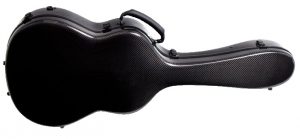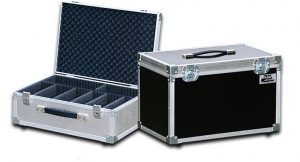How to transport musical instruments
Transporting musical instruments always requires careful preparation. The cargo is delicate, costly and – to make it even more difficult – often unconventional in shape and size. Not securing it properly can lead to serious (even permanent) damage. In this article you will find tips on transporting musical instruments that will help you ship them safely.
Things to have in mind when you are preparing to transport musical instruments
The first thing to consider is obviously their size. Some instruments (such as concert flutes or clarinets) will easily fit into your car or even a backpack. Others, for example bassoons, consist of several parts and can be disassembled. When in parts, a bassoon can be transported in a car boot (some models will even fit in your carry-on luggage!).
Unfortunately, not all instruments can be transported in a car boot. Some of them (e.g. drums) require more space or particular conditions during shipment.
The material from which the instrument is made usually determines the conditions in which it must be transported. For example, wooden musical instruments require the proper temperature as well as humidity. If the temperature or humidity is either too low or too high, the instrument may fracture.
Additionally, it is crucial to protect instruments against jostling or even against minor vibrations during transportation. Continued exposure to vibrations can cause the instrument to go out of tune, or even damage it.
If you decide to transport a chordophone in a car boot or luggage hatch, remember to place it so that the strings are facing upward – otherwise you risk serious damage (your instrument is likely to break during transportation).
The type of case you have for your instrument is also a major factor in safe transportation. Essentially, you can choose from three types:
- Fabric case
- Gigbag
- Hard case (made with carbon fibre)
A fabric case is the cheapest choice and is very convenient for day-to-day use. But if you plan to take your instrument on a longer trip, you should consider acquiring a gigbag or a hard case.
A gigbag is a solution in between a material case and a hard case. It has a layer of foam that is great for absorbing vibrations and a layer of polypropylene that protects the instrument from mechanical damage during shipment.
The safest way of protecting your musical instrument is to use a hard case. This is made of carbon fibre, which makes it very resistant and light at the same time. It will considerably lower the risk of mechanical damage during the transportation of your instrument.

Source: kisielewski.com.pl
Transporting musical instruments on your own
– You can constantly check temperature and humidity.
As I mentioned, some of instruments can be safely transported in a car boot (or even on a car seat!). But what of those that are much too big to fit into a car?
For example – a standard cello’s dimensions are about 49 x 20 x 11 inches, which makes it hard to safely transport in most car boots (placing it in a boot is one thing, but you also have to secure it for the duration of the journey). And there are many instruments considerably bigger than a cello (a bass can be taller than 79 inches!).
If you have an estate car you can attempt to transport a bass in the boot, with the back seats lowered. But you will have to be extra careful and acquire a hard case for your instrument (unfortunately hard cases for a bass are quite expensive and not so easy to find).
If it was a piece of furniture, you could try to somehow squeeze it into your car (by placing it diagonally, for example). But with a musical instrument, taking such a risk can cause permanent damage to your costly cargo.
Hiring a transport provider to transport a musical instrument
– Professional help with properly securing the cargo
– The only available transport option if you have more than one instrument to transport or if you want to transport an instrument bought abroad
– You can work out all of the shipping details directly with the person who will transport your instrument.
When transporting larger musical instruments, it is best to hire a professional. That way you will guarantee the transportation will be as safe as possible.
Make sure you’ve chosen the right case for shipping (we recommend you use a hard case with carbon fibres). If you need to transport your instruments on a long (international) route, you should consider buying a road case – dedicated for the transportation of musical instruments. It’s an expensive solution, but nothing will protect your precious cargo better.

Source: paco-cases.pl
Remember that it is not enough to secure the case inside a vehicle. Securing a case will protect the instrument from mechanical damage (e. g. from falling during emergency braking). But you also need to protect the instrument from vibrations on the road – to do that you should wrap the instrument in cloth before placing it in the case. The cloth and a layer of foam inside the case should absorb any vibrations and even minor jostling.
Inform the transport provider what kind of cargo will be transported and what conditions must be maintained during transport (for example let him know if a certain temperature should be maintained or if the instrument must be transported upright). Professional transport providers often have product liability insurance, which means that you will be entitled to compensation should anything happen to the cargo.
Hiring a courier (such as DHL or UPS) is often not an option when it comes to transporting musical instruments (due to their size and also because of the need for special conditions during shipment). But that does not mean that you are out of options.
All you have to do is find a transport provider that will be travelling on your route anyway. Your musical instrument will be only a part of his cargo, so there is a good chance that you will get a competitive price for the service. Additionally you will be able to discuss transport conditions directly with the person who will be shipping your cargo.
Instruments you should transport with professional help:
- Cello
- Bass
- Percussion
- Piano
- Sousaphone
- Harp
Below you will find some sample offers of musical instrument transportation. All the prices come from real quotes on transport marketplace Clicktrans.com.
Electric piano from Ferndown (UK) to Warsaw (Poland) for £211
https://clicktrans.com/delivery/electric-piano
Electric organs from High Wycombe (UK) to Warsaw (Poland) for £165
https://clicktrans.com/delivery/electric-organs










